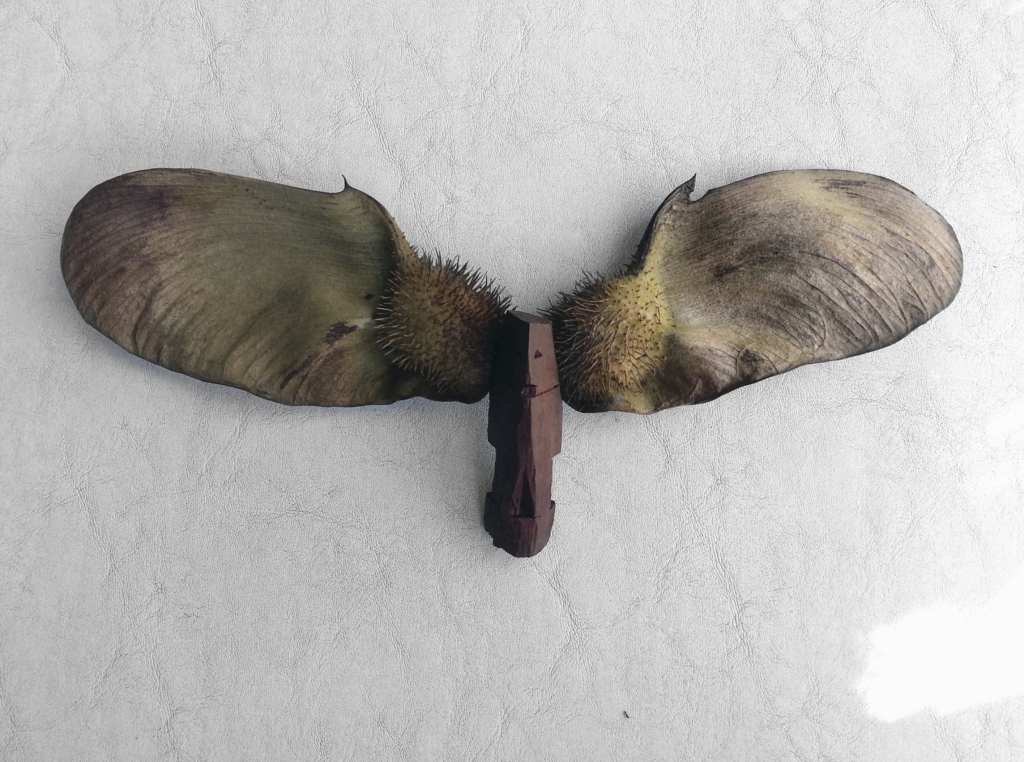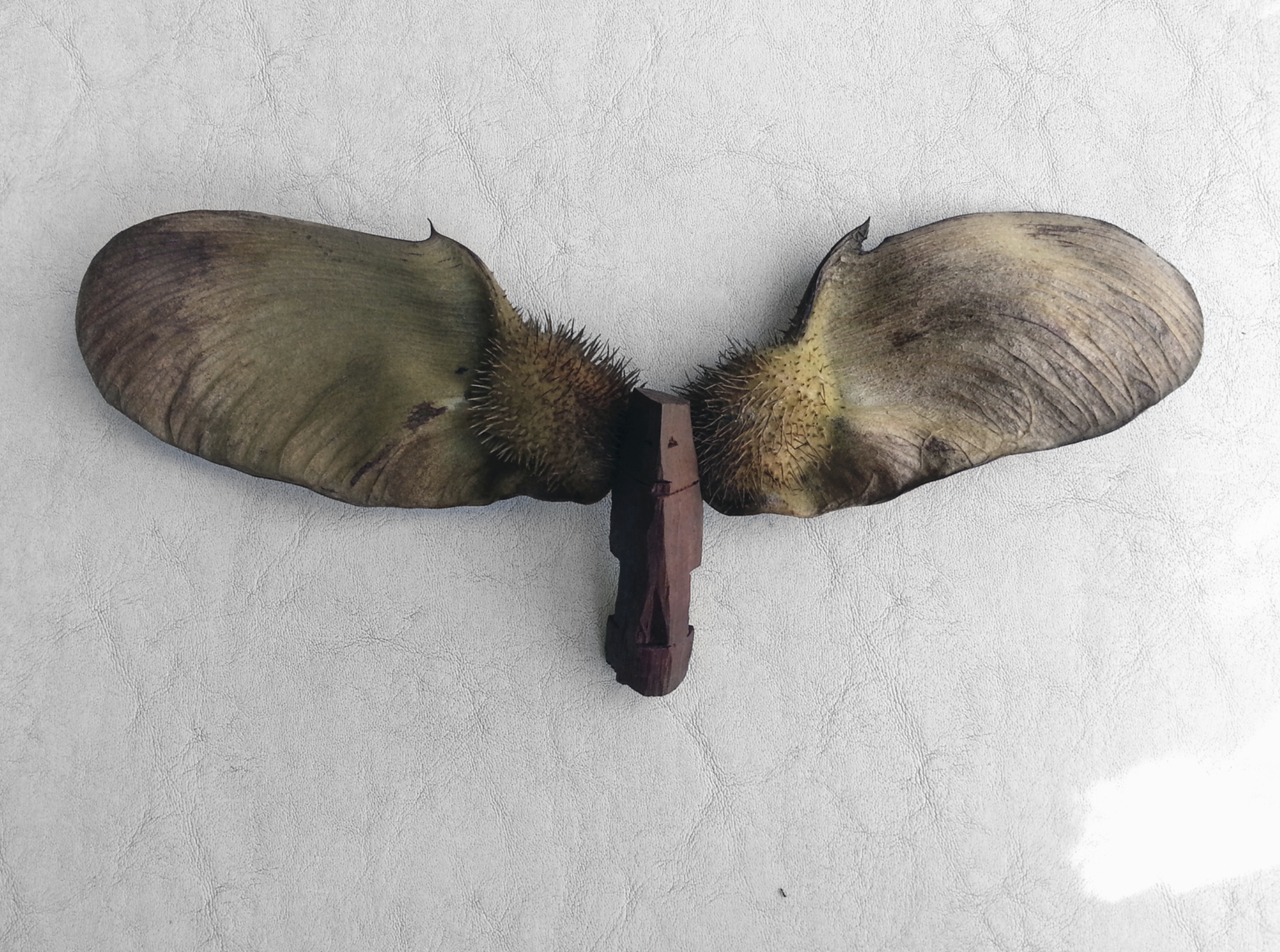
Sheela Gowda
This, deathless, 2014
a photograph of a sculptural collage–an Anthropocene portrait. Gowda is interested in the power that objects and forms carry in capturing aspects of reality, with its social and cultural narratives, that are otherwise unseen and unspeakable through other languages of representation and analysis. Materials for Gowda can be at the same time complex metaphors and ends in themselves, forgetful of their many cultural and spiritual investments attributed by human practice, but charged with a potential spiritual tension of their own, serving as relics of worlds unravelled and building blocks for other, new ones. These worlds are complex, often conflicted and equivocal. Her vocabulary is constantly discovered and invented in the things that surround her and that she respells into her works.
Artist Bio
Sheela Gowda (born 1957 in Bhadravati, India) is a contemporary artist based in Bangalore. She studied painting in Bangalore, Santiniketan, and London. Initially trained as a painter, she expanded into sculpture and installation using diverse materials like human hair, cow dung, incense, and kumkuma powder. Her work, known for its ‘process-oriented’ nature, often reflects the labor experiences of marginalized people in India and is associated with postminimalism and ritualistic themes. Influenced by K. G. Subramanyan and later Nalini Malani, her early works featured pensive girls in nature, evolving into expressionistic depictions of middle-class chaos. Gowda received the 2019 Maria Lassnig Prize.
Themes: human, agency, extinction
Category: Images
